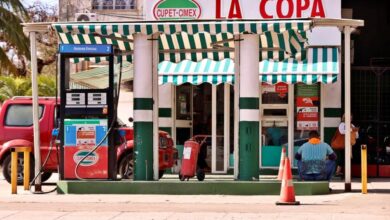Venezuela: a talent exporting country
Listen this article
Freedom is an abused word that creates great confusion among the inhabitants of a society. Living in freedom means a balance between individual interests and those of others

The cultural thread that sustained Venezuela between the decades of the sixties and seventies was influenced by the need to leave behind the environment of the civil wars and dictatorships that the country had lived in the past.
Leer en español: Venezuela: un país exportador de talentos
As has happened at the historical level in each social event that has left great contributions to humanity as the Renaissance, the times of crisis that the country lived at that time made the needs to progress in cultural terms to motivate great exponents like Jesus Soto or Carlos Cruz Diez to leave an artistic imprint both nationally and internationally.
During this stage, in addition, Venezuela received immigrants of any nationality capable of benefiting the social and economic interests of the country. Among them, there was quality labor like engineers, investors, construction masters, specialized workers, electricians and, of course, creative people that invested in private industry and that lived public interests with concern and conscience.
A very different picture from the one that Venezuelan society lives today. Few are those who risk investing in these lands with the fear of losing what little can be built in times of crisis, misery, scarcity, corruption, and hyperinflation that exceeds 1,300,000%. The private sector has been totally threatened by the illegitimate executive power of the country.
Read also: Venezuela: could there be a military intervention?
What is the inheritance that the next generations will receive?
After the Guaidó's oath and the few actions he has executed in the presidential period he represents, there is a possibility that the investment sector, foreigner or not, decides to resume plans to work in Venezuela. However, for the media and artistic expression elites, this social and cultural setback represents a dubious return to Venezuelan lands.
Being the Latin American country with the highest rate of migration in the last 20 years leaves us with serious effects as a nation. As a result of this crisis, we have become a country that exports talent.
A clear example of this reality is represented by the closure of Radio Caracas Television on May 27, 2007. This television channel was the one that accompanied several generations for approximately 50 years and the one that saw the birth and growth of numerous talents of the artistic medium such as Scarlet Ortiz, Juan Carlos Garcia, Lupita Ferrer, José Luis Rodríguez, Pierina Spain, Orlando Urdaneta and more. These talents evidently found themselves in need of trying their luck in international lands due to the lack of freedom of expression the is the country is suffering.
This reality does not only affect the recognized artistic guild. What happens with the graphic designer, the journalist, the visual artist, the poet, the creative director, the announcer, the scriptwriter, the marketing analyst, the photographer, the publicist, the musician? It is necessary to explore other territories in search of a reality that allows them to grow professionally and maintain their physical, emotional and mental integrity intact.
It is evident that the current scenario is not apt to receive back the lost talents and, even worse, to witness the loss of talents that day by day leave the Venezuelan lands in search of a better future.
The reason of belonging to a society is precisely so that each individual member can develop more effectively than if he tries alone. The same society must be governed by other basic concepts such as freedom, fraternity, respect and humanism, the same that today are scarce in the Venezuelan reality.
LatinAmerican Post | Amanda Rebeca Díaz Marín





